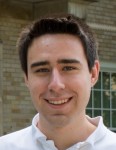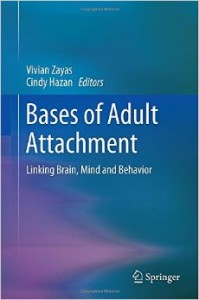Reprinted from the College of Human Ecology, NewsHub
By Tyler Alicea ’16, MPS ’17

In faculty research labs, in communities across the state, and at jobs and internships around the globe, Human Ecology undergrads are making a powerful impact this summer as they apply their knowledge and skills in real-world settings.
Brian LaGrant ’17, a human development major from New Hartford, N.Y., discusses his research on factors surrounding imitation among children and adults:
What are you working on this summer?
I’m working on social learning in children and adults. I’m in the Affect and Cognition Lab. We work primarily on neuroscience research, but we’re also doing another project on social learning.
We have this apparatus like a puzzle box, and it’s supposed to simulate something that you haven’t seen before. People can watch somebody else see how to open it and then they can have their turn trying to open it. So that’s what we’re using to measure imitation.
When you copy somebody, they can have different characteristics, like they might be smart or they’re not sure how to open the box. They might be a very prestigious individual or a very well-respected individual or not so much. We want to see how those two factors—knowledge and prestige—can affect how much that model is imitated by children and adults.
How does this work relate to your coursework?
I’ve done a lot of neuroscience research, and this is a little different from what I’m used to, but I really like it because it ties into human culture and how we have evolved over many generations. Social learning is a very important aspect of development, especially a concept called the “ratchet effect,” which is how we innovate new technology over time. I haven’t really focused on social learning throughout my undergraduate years, but it’s a nice complement to the other kind of education I’ve been focusing on.
Who are your Human Ecology mentors?
I’ve formed a few close relationships within the College of Human Ecology as a whole, and specifically human development. Professor Marianella Casasola has been there with me since day one. When I lived in Donlon Hall, she was a faculty-in-residence and from there we formed a close relationship, and I was able to do some research with her, and she’s taught some of my classes over time. Professor Eve De Rosa, one of the principal investigators in my lab, has been a great help, and she’s so nice and so welcoming to any ideas that I have. They’ve both been very important to my development at Cornell.
What excites you about your research?
What excites me the most is that this is my first time having more of an independent role in the research where I can design the experiments and start running them on my own. Having that authority and independence is really, really exciting, and it makes me want to perform research in the future.
What societal impacts does your work have?
One thing I’ve been looking at recently is how autistic children might act differently at these tasks, and that’s something I could study in the future. For the area of research I’m focusing on, social learning, this kind of research hasn’t been done before. I think it’s important because looking at two or three different conflicting factors like I am is a better simulation of what the real world is like. Previous research has only looked at one factor, but there are so many different factors at play—whether a person is knowledgeable, prestigious, and things like that. I think my research is delving more into that area.
Brian’s summer project, The Influences of Model Social Status and Knowledge State on Imitation in Children and Adults, is funded by a College of Human Ecology summer research stipend, which provides undergraduate students will funding for full-time research with a faculty member.
By Tyler Alicea ’16, MPS ’17; photo by Mark Vorreuter.


